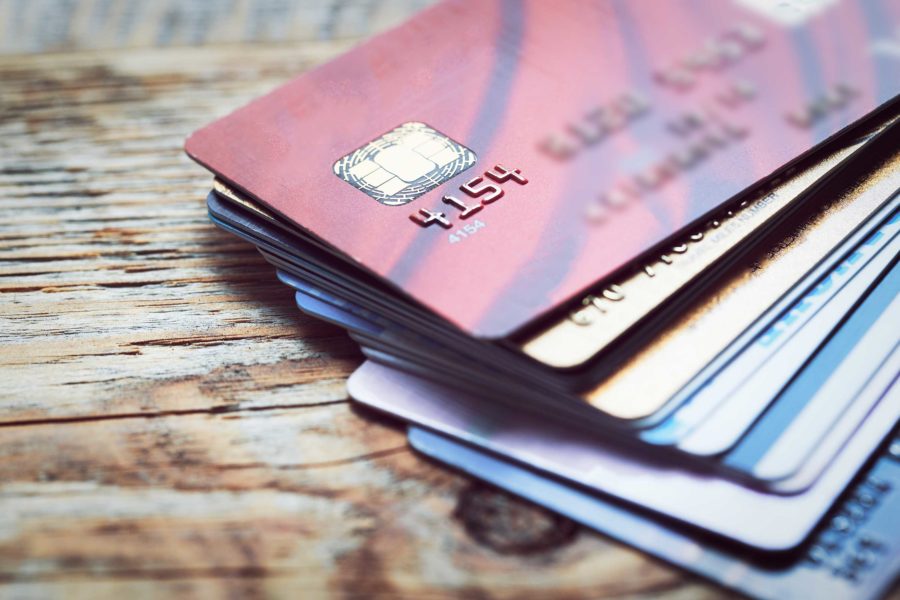It’s almost impossible to avoid credit cards these days. We’re bombarded with credit card offers in the mail and online, and some businesses have stopped accepting paper money altogether. Seems like the reign of cash is over — credit is the new king.
But, have you ever paused to think about how credit cards may be affecting your overall financial health? From rewards programs and bonus offers to late fees and interest rates, there’s a lot to consider when deciding to open your first (or second, or third) credit card.
We’ve done the research so you don’t have to. Here are the pros and cons to having credit cards, and tips for using credit cards wisely.
Pros: Why You Should Flash That Plastic
There’s one very good reason many people now rely on credit cards to pay for everything: The convenience factor. You can make online purchases and pay for things at stores with a swipe, avoiding the hassle of cash. But, that’s just the tip of the iceberg when it comes to the benefits of credit cards.
“Credit cards can provide rewards like cash back or travel points,” says Greg Mahnken, a credit industry analyst at Credit Card Insider. “When you use a credit card that provides rewards, you get a little something extra for every dollar you were already going to spend.”
New credit cards may come with bonus offers (such as a $300 statement credit when you spend $5,000 in the first three months), which can be a nice boost to your budget.
Some credit cards include a range of other non-financial perks that may ultimately save you money. For example, you can take advantage of an extended warranty policy from a credit card for a major purchase instead of paying the retailer for the same protection.
“Some credit cards have rental car insurance, so you don’t need the additional insurance [from rental car companies],” says Jacqueline Devereux, a finance and credit expert at SproutCents. “Many cards have travel insurance that will refund your flight and hotel expenses if you need to cancel your trip.”
Looking to pad your credit score? A credit card might be able to help. Payment history is the most significant factor in your credit, accounting for a whopping 35 percent of your score.
“By [putting] your normal monthly expenses on a card and paying the balance in full each month, you’ll demonstrate on-time payments a build a positive payment history over time,” says Devereux.
Cons: Proceed At Your Own Risk
Despite many perks and benefits, credit cards can get people in some serious financial trouble when used irresponsibly. It’s all too easy to overspend without realizing it when all you have to do is insert your chip to make a purchase and worry about the bill later.
“A credit card is a revolving loan. If you carry a balance from month to month or only make the minimum payments, you’ll be charged interest on the balance,” says Mahnken.
According to the Federal Reserve, the average APR on a credit card is around 15 percent. However, some cards come with interest rates that more than double the national average. This means that if you don’t bring your balance to $0 before the billing cycle ends, you end up paying a lot more for the purchases you made and could potentially dig yourself into debt.
Speaking of monthly billing, making late payments on your credit card can be detrimental to your finances. Credit card companies can slam you with late fees (often $25-$35) if you don’t pay your bill on time. They may also alert the credit reporting agencies about missing payments, potentially dragging down your credit score and making it difficult to take out a loan or secure low interest rates in the future.
While carrying cash could leave you vulnerable to pickpockets, credit cards come with their own big risk: Fraud. If a hacker gets hold of your credit card details, he or she may be able to do some serious damage. The Fair Credit Billing Act states that cardholders may be responsible for up to $50 in unauthorized charges (although many credit card companies won’t charge cardholders anything). A credit card security breach could also make you a victim of identity theft.
“The threat of identity theft is real. Consumers should check accounts online regularly, and at the very least, verify every charge on every monthly bill,” says Freddie Huynh, vice president of credit risk analytics at Freedom Financial Network.
7 Tips on How to Use Credit Wisely
Want to reap the benefits of credit cards without letting them become an anchor on your financial growth? Here are the best practices for paying with plastic.
- Pay off your balance in full by the due date every month. If you’re prone to forgetting, set up automatic payments to avoid paying interest and late fees.
- Don’t fall into the habit of overspending. Only use your credit card for purchases you can afford that month. Use your credit card like you would a debit card.
- Don’t open more credit cards than you’re capable of managing and monitoring each month — even though bonus offers can tempt you to open new cards. Having 10 credit cards is fine for some people, while others may find one overwhelming.
- Read the fine print before you sign up. Don’t understand something? Give the credit card company a call for clarification.
- Only use your credit card at websites you know and trust when shopping online. A padlock symbol in the address bar and sites that begin with “https” are signs that the site has taken precautions to protect your information.
- Avoid closing old cards, even if you’re not using them. They contribute to the length of your credit history, which helps your credit score.
- Be diligent about fraud. Check your credit card activity online at least once a week, and read your monthly statements in full. This will help you catch potential fraud early.
Credit cards can be your best friend if you use them responsibly, earning you perks, rewards and an improved credit score. But, they can also make it easy to accumulate high-interest debt.
Understanding the pros and cons of paying with plastic can help you feel empowered to make the smart choices about credit cards—whether that’s embracing every offer you come across, or shunning them entirely.



 5 min read
5 min read



